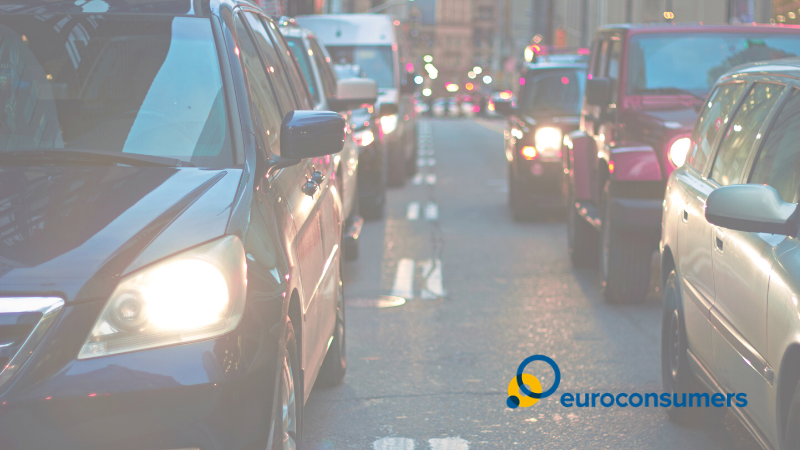Worrisome trend: People expect to use cars more and public transport less

A survey, taken from 11 countries, which contrasts mobility habits before COVID-19 with October 2020, shows that people prefer individual forms of transport (bike, car) and also localized travel, after the pandemic.
The survey was conducted among a representative sample of 11,273 consumers by our members Test Achats/Test Aankoop (BE), Altroconsumo (IT), Ocu (ES) and Deco Proteste (PT) together with 7 other organisations in Austria, the Czech Republic, Denmark, Germany, Lithuania, the Netherlands and Slovenia.
The survey results reveal that:
- A change in mobility habits is most pronounced in terms of public transport, where there is a noticeable drop in people using it weekly
- Public transport (68%) and long-distance buses/bus stations (67%) score the highest in terms of people feeling insecure regarding COVID-19 contamination. These are followed by trains/train stations and flights/airports (both at 61%).
- Once the pandemic is over, people expect to use individual forms of transport (bikes, cars) more so than before. it started.
- Once the pandemic is over, people expect to travel abroad less than before it started.
“Unfortunately the covid-19 pandemic has seemed to push consumers again more into the direction of individual car usage. Although somehow understandable while we are in the midst of fighting a highly contaminating virus, this is a worrisome trend as consumers indicate this would also impact their mobility behavior in the post-covid era”, says Els Brugggeman, Head policy and enforcement at Euroconsumers. “Making the shift towards more sustainable forms of transport is a crucial part of the green transition. This hasn’t changed at all because of covid; now more than ever, it is imperative to have an ambitious transport policy that promotes public transport and cycling”.
To ensure that the change in mobility habits do not negatively affect the long term success of the European Green Deal and mobility in Europe is truly Approved byTomorrow.
Read here the policy BEUC’s policy recommendations:
- Keep public transport a safe and attractive option for citizens: Public transport operators must continue to effectively implement COVID measures to tackle the negative perceptions that may exist about public transport use. Consumers should be able to regain full confidence in using public transport. Authorities should also continue investment in the costs and frequency of public transport to signal that it has a primal role in mobility.
- Promote walking and cycling as alternatives to car use, where possible: The survey predicts that bikes and cars could be more frequently used as a result of the pandemic. Local authorities are therefore advised to analyse a necessary upgrade of cycling infrastructure in towns and cities. In terms of car use – and while recognising that many people rely on cars and have limited or no other options – authorities should beware of a modal shift from public transport to cars. A surge in individual car use would not benefit traffic flows, and would also see a spike in emissions which have declined significantly across the EU since the beginning of the crisis.
Restore trust in long-distance travel: Since March 2020, travellers have faced significant difficulties in being reimbursed as a result of obligatory cancellation of travel. The survey results show that respondents now prefer domestic over international travel as a result. To restore trust in a hassle-free trip, and in addition to hygiene measures, it is important that passenger rights can never be diminished and always be easily enforced.
Read more on BEUC’s website

